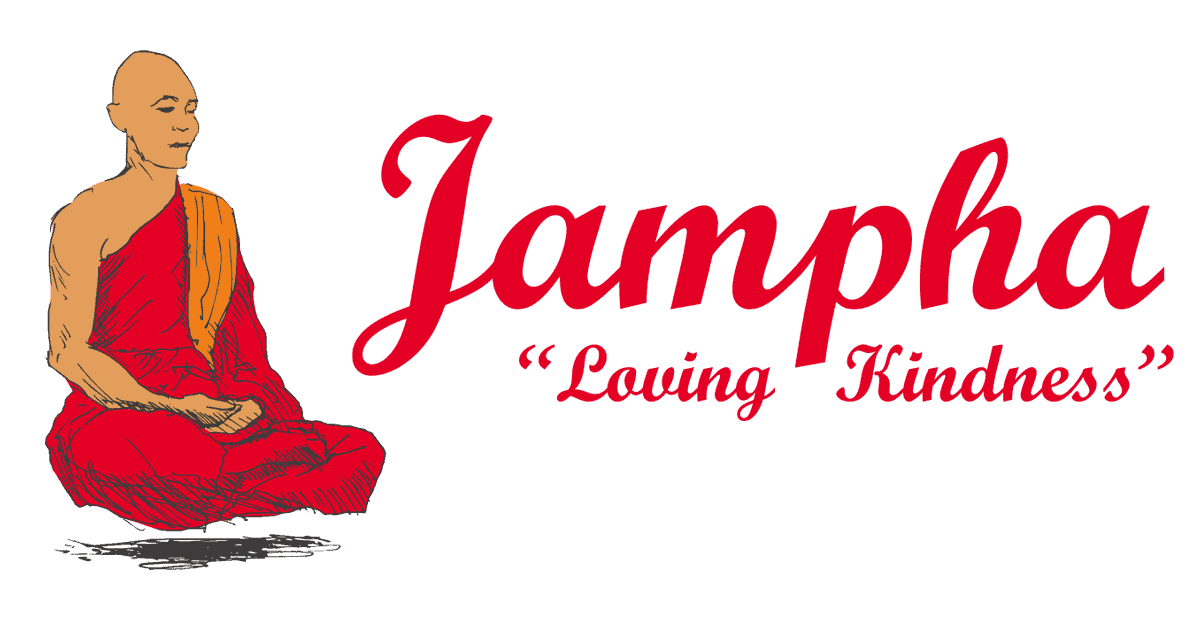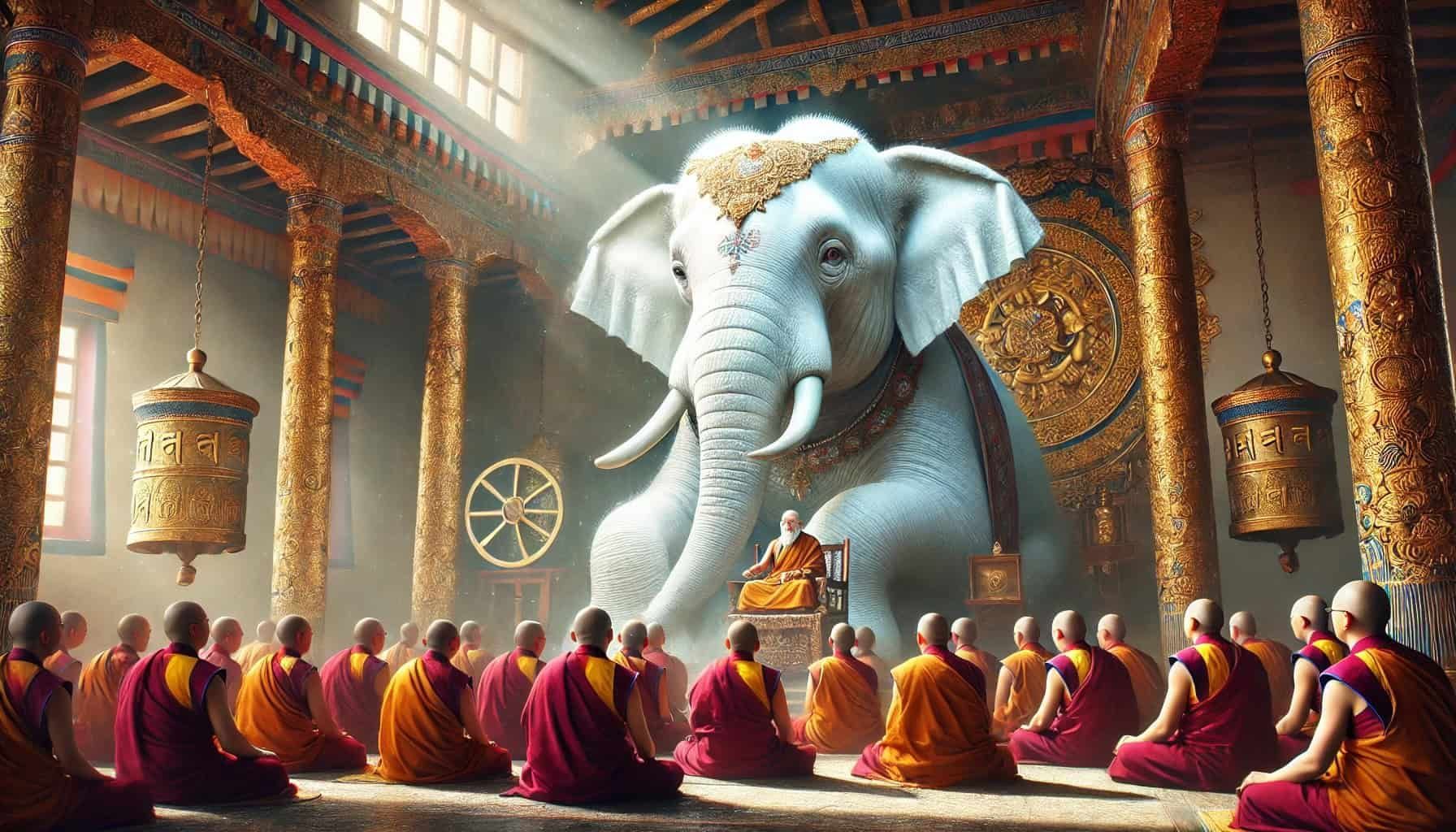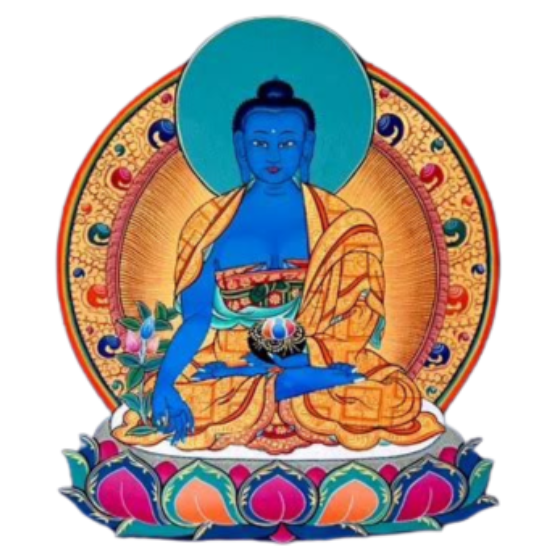Buddha Is in the Sacred Mind Sanctuary
Welcome to The Sacred Mind Sanctuary where wisdom insight and empowering physical, emotional and spiritual navigation skills are offered.
The Buddha has shared many profound teachings and jewel statements to ignite awareness and understanding like "You will not be punished for your anger; you will be punished by your anger. We can see this is a position of skillful insight in understanding our actions, but how do we attain such an inner skillset and tranquility in the face of life's challenges?
The profound statement "You will not be punished for your anger; you will be punished by your anger" encapsulates a timeless truth about the intricate dynamics of human emotions and their profound impact on one's well-being. At its core, this insight from Buddha written in the Dhammapada speaks to the deeper consequences of harboring and succumbing to the powerful force of anger. It is considered one of the three poisons causing all suffering.
The Three Poisons Causing All Suffering
1. Greed (Dod Chags): Also known as desire or attachment, greed involves an intense craving for sensory experiences, material possessions, or personal fulfillment. It is the insatiable desire for more, leading to clinging and dissatisfaction.
2. Hatred or Aversion (Zhe Dang): This poison encompasses various forms of negativity, including anger, hostility, aversion, and resentment. It arises from an unwillingness to accept and a rejection of what is, resulting in inner turmoil and conflict.
3. Ignorance (Ma Rigpa): Ignorance, in the Buddhist context, refers to a lack of understanding or awareness of the true nature of reality. It involves misconceptions about the impermanence of life, the nature of suffering, and the interdependence of all things. Overcoming ignorance is central to attaining enlightenment.
These three poisons are considered the root causes of suffering in Buddhist philosophy. The path to liberation involves recognizing, understanding, and ultimately overcoming these negative mental states through mindfulness, ethical conduct, and the development of wisdom. By addressing and uprooting these poisons, individuals can cultivate a mind free from attachment, aversion, and ignorance, leading to greater peace and enlightenment.
The True Consequences of Anger Are Internal
When Buddha imparts this wisdom, he is guiding us to recognize that the act of experiencing anger itself is not a punitive action from an external force. Instead, it is a reminder that the true consequences of anger are internal; they unfold within the individual who harbors this intense emotion. Anger, left unchecked, can morph into a self-inflicted form of suffering, a punishment that arises from within.
The notion that one will be "punished by your anger" underscores the self-destructive nature of this emotion. Anger, if allowed to fester and dominate one's emotional landscape, can lead to a cascade of negative effects on mental, emotional, and even physical well-being. The consequences may manifest as strained relationships, impaired decision-making, and a general erosion of one's inner peace and tranquility.
In essence, Buddha invites us to understand that anger, when unmanaged, becomes a formidable force that shapes our reality and influences the quality of our lives. It is a poignant call to self-awareness and self-discipline, urging us to take responsibility for our emotional states and cultivate the inner strength needed to transform anger into understanding and compassion.
By contemplating this teaching, individuals are encouraged to reflect on their responses to anger, recognizing it not as an external judgment but as a potent force that, if left unattended, has the potential to inflict profound consequences on their own journey toward inner peace and well-being. In this way, the wisdom encapsulated in this statement serves as a guidepost for cultivating emotional intelligence and fostering a harmonious inner landscape.
Join our Sacred Mind Sanctuary as we delve into the profound teachings of Buddhism and embark on a journey toward inner listening, insight, wisdom energy and serenity.
Awareness One: Listen Twice as Much as You Speak
Our first lesson delves deep into the transformative power of listening. This isn't just about hearing words but truly understanding the essence behind them. Buddha once beautifully articulated this concept, saying, "To understand everything is to forgive everything." This profound statement highlights the deep connection between understanding and compassion.
When we listen more and speak less, we embark on a journey of greater empathy and comprehension. It's about actively engaging with the world around us, not just passively hearing it. By doing so, we allow ourselves to truly connect with the emotions, thoughts, and experiences of others. This practice opens our hearts to the intricate tapestries of human experience, weaving a bond of understanding that transcends mere words. Moreover, listening more than we speak doesn't diminish our voice; instead, it enhances the quality of our interactions. When we do speak, our words are more thoughtful, informed, and resonant. They come from a place of deep understanding, not just superficial acquaintance with the subject.
This art of listening extends beyond personal conversations; it involves listening to the world around us, to nature, to silence, to the unspoken words of those who may not have a voice. In doing so, we develop a broader perspective of the world, a panorama of diverse viewpoints and experiences. This not only enriches our understanding but also fosters a sense of inner peace and wisdom. By listening twice as much as we speak, we unlock a universe of understanding. We learn to perceive the unspoken, to empathize with the unheard, and to connect with the unseen. This opens doors to deeper connections, not just with others but also with ourselves. It is through this profound listening that we begin to understand the intricacies of life, the subtleties of human emotion, and the profound truths that govern our existence. As we listen, we grow in understanding, in compassion, and in wisdom.
Awareness Two: Awareness of Who Is in Control of Your Life
Imagine your life as a unique journey, like an adventurous hike through a beautiful forest. Along this path, you come across people who have their own opinions and attitudes, much like different signposts or directions in that forest. Buddha, who was known for his profound wisdom, once shared this guidance: "Do not dwell in the past, do not dream of the future, concentrate the mind on the present moment." What does this mean? It means that your focus should be on the now, just like when you're hiking, you pay attention to the trail you're on.
The lesson here is about finding your own way on your life's path without getting lost in the thoughts and judgments of others. Sometimes, people may have their own ideas about what you should do, or they might have comments about your choices. While it's natural to consider advice, it's equally important to remember that your journey is yours to navigate and you will find your most truthful answers within your hearts intelligence. To awaken from ignorance you can use the quotes of the Buddha and to find experiened teachers to offer assistance in perception. This lesson encourages you to follow your own heart and values, to stay true to who you are, and to make choices that resonate with your inner wisdom. By doing so, you remain the captain of your own life, charting a course that feels right to you, regardless of what others might say or think. It's about finding your own unique path and walking it with confidence and authenticity.
Awareness Three: Life Is Energy in Motion
Life is like a winding river, sometimes calm and other times turbulent. The Buddha, with his profound wisdom, once shared a powerful insight: "Pain is certain, suffering is optional." What does this mean? It means that while we can't escape life's challenges and difficulties, we have the power to choose how we respond to them. Imagine life as a series of waves, each one representing a different situation or problem. Some waves are small, like minor inconveniences, while others can be towering giants, like significant setbacks or losses. Now, here's the key: Accepting the worst doesn't mean expecting the worst all the time or living in constant fear. It means being prepared for those challenging moments that inevitably come our way. Think of it as having a life jacket on a boat. We hope we won't need it, but it's there just in case. When we are mentally prepared to accept the worst, we become like that life jacket for our minds. We don't let
fear of the unknown or the fear of failure control us and we recognize that is an unproductive energy pattern we are discarding anytime it arises.
Open free awareness and non resistant acceptance is like a shield that protects us from the sharp arrows of suffering when life challenges appear before us, as it often does. How we view phenomena and how we allow our mind to interpret what we appear to be viewing using open unlabeling awareness acceptance acts as a buffer. We may feel pain, but we don't add unnecessary suffering by resisting what's happening or dwelling on what went wrong.
Acceptance or rather non resistance to what is appearing for view is not a surrender to defeat; it's a recognition of what is appearing as a reality, when it may be a fabrication appearing as a reality. By embracing this truth, and mind awareness practice we find inner peace even in the face of what is appearing as adversity. So, in practical terms, cultivating resilience and inner strength and showing up and being present with equanimity, knowing that you have the power to navigate the waters, no matter how rough they may appear to become. By being ready to accept what flows as merely energy and information, we not only find peace in what appears as adversity but also discover our own inner strength and capacity for flow and growth.
Awareness Four: Don't Be Afraid of Failing Because It Is the Only Way to Progress
Buddha, the great spiritual teacher, once shared profound wisdom: "Each morning, we are born again. What we do today is what matters most." These words remind us that each day is a fresh start, a chance to grow and learn. The lesson here is about embracing failure not as something to fear but as a valuable stepping stone on our journey of self-discovery and self improvement.
Every seemingly mistake we make is like a teacher showing us what we need to see more clearly for deeper understanding. Practicing inner listening to inner wisdom and strengthening resilience. Just as a sculptor shapes a beautiful creation from a block of stone by chiseling away the unnecessary parts, our failures and mistakes help shape us into wiser, more capable individuals. So, don’t be afraid to take risks, try new things, and accept that failure is a natural part of growth and have fun with failing when it happens. Embrace your mistakes with enthusiasm, for they hold the keys to your progress. Remember, it's not about how many times you fall; it's about how many times you rise, each time stronger and wiser than before, its an empowering and fruitful journey to enjoy being present with, in every breath you take. This is the path to personal growth and self-discovery, and it all starts with the approach you choose either from a fear baes or the enthusiastic joyful courage you can generate with each failure and success head-on. It all becomes a joyful experience of discovery rather than one laden with expectations.
Awareness Five: Simplicity Is a Great City to Reside :)
Finding clarity and peace in simplicity, we discover a profound truth that clarity and peace are often found in the simplest aspects of life. Buddha, the great teacher, once imparted his wisdom, saying, "The way is not in the sky; the way is in the heart." This lesson encourages us to embrace a life focused on what truly matters, stripping away unnecessary complexities and distractions that can float through the minds ’sky’. Simplicity in this context means keeping it simple, tending to the inspired thoughts teachings lifestyle and friends that truly nourish your soul and letting go of the ones that do not. It's like cleaning a cluttered room. When you remove the excess, you create space for the essential things to shine. In the same way, simplifying your life allows you to prioritize your values, relationships, and inner well-being.
Living simply doesn't mean a lack of ambition or settling for less; instead, it's about discerning what truly aligns with your inner journey, heart's desires and aspirations. It's about letting go of the constant need for more and instead finding contentment in the present moment. Consider the serene beauty of a clear starry night. The vastness of the sky may seem complex, but the beauty lies in its simplicity. Each star shines with clarity, and the quietude of the night brings peace.
Similarly, when we declutter our lives and focus on what truly matters, we experience a similar sense of clarity and peace within our hearts. So, as you navigate life's journey, remember the wisdom of simplicity. Embrace what brings you joy and peace, and let go of the unnecessary burdens, old resonance patterns, thoughts etc) that cloud your path. In simplicity, you'll more easily discover the true essence of a meaningful and harmonious life.
Awareness Six: The Quality of Humility in Your Life
Buddha once shared profound wisdom, saying, "Do not be like a rainstorm that pours down on others and leaves them with nothing, but be like a dewdrop—silent, gentle, and refreshing." This lesson teaches us the value of humility, which is the quality of being modest and unassuming despite possessing wisdom or accomplishments.
The analogy of the rainstorm and the dewdrop serves as a metaphor for how we interact with others. The rainstorm, forceful and overwhelming, symbolizes a lack of humility—where one's actions may drown others in the intensity of their presence. On the contrary, the dewdrop, gentle and unassuming, represents humility in action. It recognizes the quiet yet profound impact one can have without overshadowing or imposing upon others.
When we practice humility inspired by this saying, we become like the dewdrop—approaching others with a gentle presence, fostering genuine connections, and leaving a positive, refreshing influence. Humility, in this context, is not about diminishing one's knowledge or achievements but acknowledging the interconnectedness of all beings and recognizing the beauty in contributing to the well-being of others in a humble and considerate manner.
In practicing humility, you not only gain wisdom but also become a source of inspiration and guidance for those around you. Let us remember that wisdom is not measured by the volume of our words but by the depth of our humility. For it is through humility that we truly understand the world and share compassion with all living beings.
Awareness Seven: Be Aware of the Dangers of Material Fortune
As Buddha wisely shared, "Health is the greatest gift, contentment the greatest wealth, faithfulness the best relationship." These words guide us to seek fulfillment that goes beyond the accumulation of material possessions. In our pursuit of success and fortune, it is essential to be mindful of the potential dangers associated with the relentless pursuit of wealth.
In the journey towards how we do business and seek prosperity, it is crucial to remember that the means employed to amass fortune carry significant moral weight. Coveting or manipulating others' wealth or talents is considered a predatory act of greed, generating substantial negative karma. Buddha's teachings remind us that the consequences of such actions extend beyond the material realm, influencing the ethical fabric of our lives.
Buddha suggests that wealth lies not only in material abundance but in cultivating gratitude and contentment with what we have.Constantly seeking more or coveting and manipulating of others possessions, talents or wealth leads to a distorted perception of prosperity, where the acquisition of wealth becomes disconnected from ethical considerations and causing life trajectories into darkness. In that unethical pursuit, the well-being and happiness of others will be compromised, creating disharmony and imbalance. These are the acts of basically ignorant individuals who have not taken advantage of more mindful approaches to their life and hurt others because of their ignorance and because of that become enslaved into their own ignorance, and then their are the capriciously evil beings aggressively creating chaos, harming others, and who seem to be in many leadership roles across many nations and their leading corporations.
As we navigate the path of life, let us be aware of the dangers of becoming misguided by business and fortune or too attached to fortune and possessions and remember to constantly re-examine our motives and actions. Let us cherish our health, cultivate alignment with our higher intelligence, the wisdom in our hearts, and nurture faithful ethically supportive relationships. The pursuit of wealth should be guided by principles of ethical conduct, empathy, and compassion, ensuring that our actions contribute positively to the well-being of those you work with and others in that flow. In doing so, we embrace a more profound and enduring form of wealth that can lead us to miracles, lasting happiness and inner peace.
Awareness Eight: Pay Attention to Your Inner Guide
These teachings and the timeless wisdom encapsulated in the quotes from Buddha serve as a profound compass to navigate the complexities of life and to remember we have an inner compass that is part of the operational system of our hearts intelligence. Cultivate inner listening. These practices are part of our Sacred Mind Sanctuary offering not just guidance but also deep insights into how we can navigate and lead a life filled with knowing wisdom and inner peace. No matter the challenges we encounter.
Jampha's Sacred Mind Sanctuary hope's that this journey through a small taste of these ancient teachings has shed light on the path to a more fulfilling and mindful existence.
As you go about your daily life, remember to activate your inner guidance systems by putting your attention to your inner awareness and asking your inner GPS to awaken and connect to your heart intelligence which is a fool proof way to be in alignment. A great way to start the day.
Remember that the insights we've explored here are not mere concepts but practical tools you can use in your own life's journey. By embracing the wisdom of these insight teachings, you are activating and empowering your potential to connect to your inner sanctuary, find serenity, purpose, and a deeper understanding of yourself and the world within and around you.
Until we meet again, thank you for joining The Sacred Mind Sanctuary Sangha on this enlightening journey. May these teachings serve as a source of inspiration, empowerment and strength and may your days ahead be filled with clarity, kindness, and the profound wisdom radiating from your Inner Buddha.

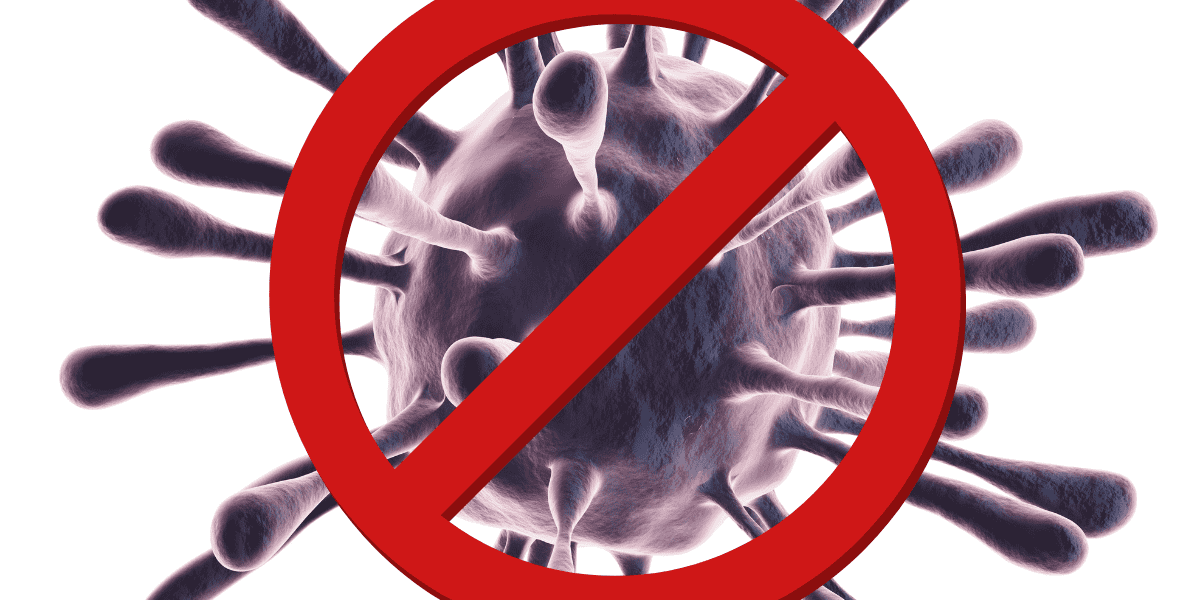




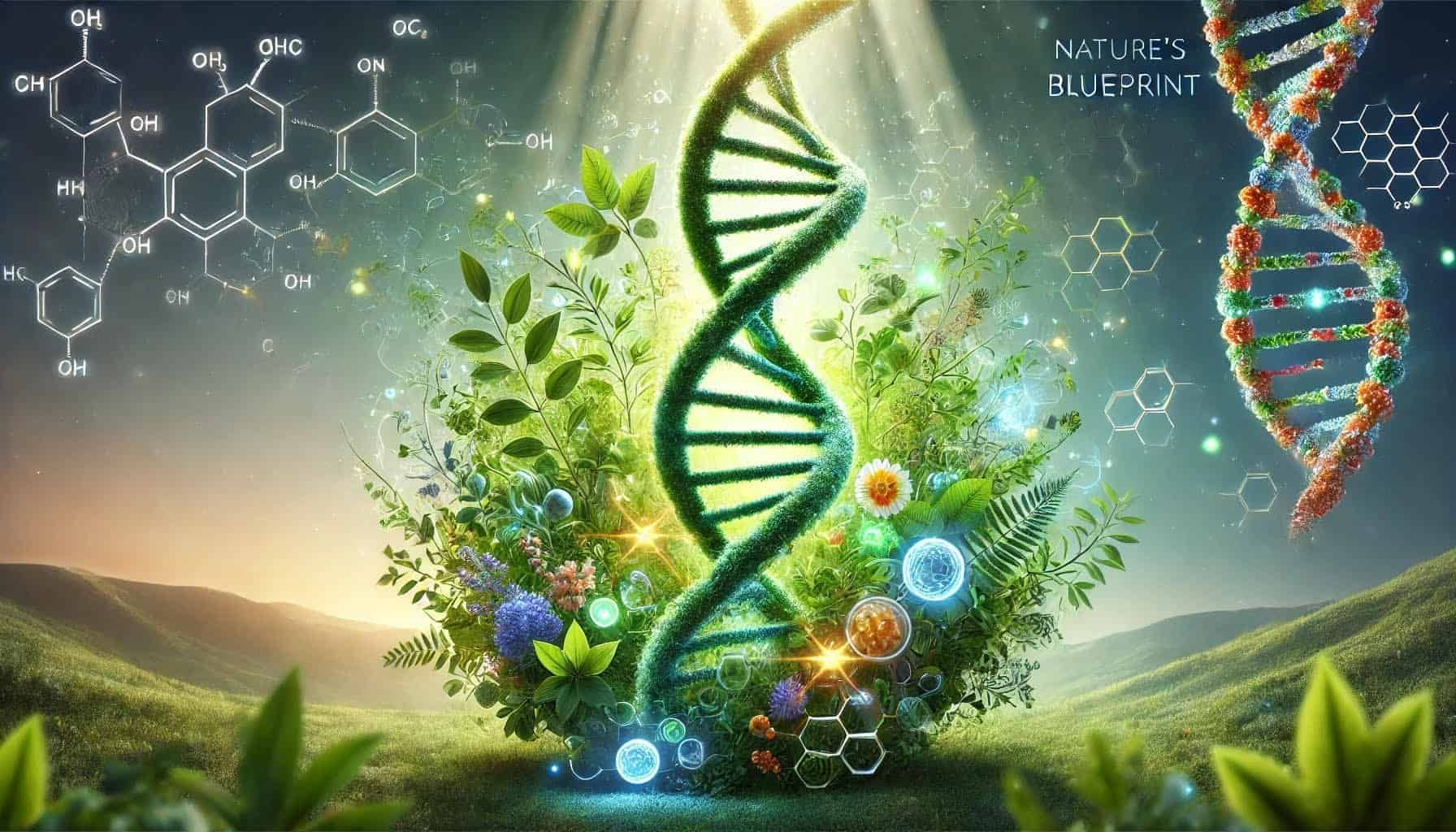
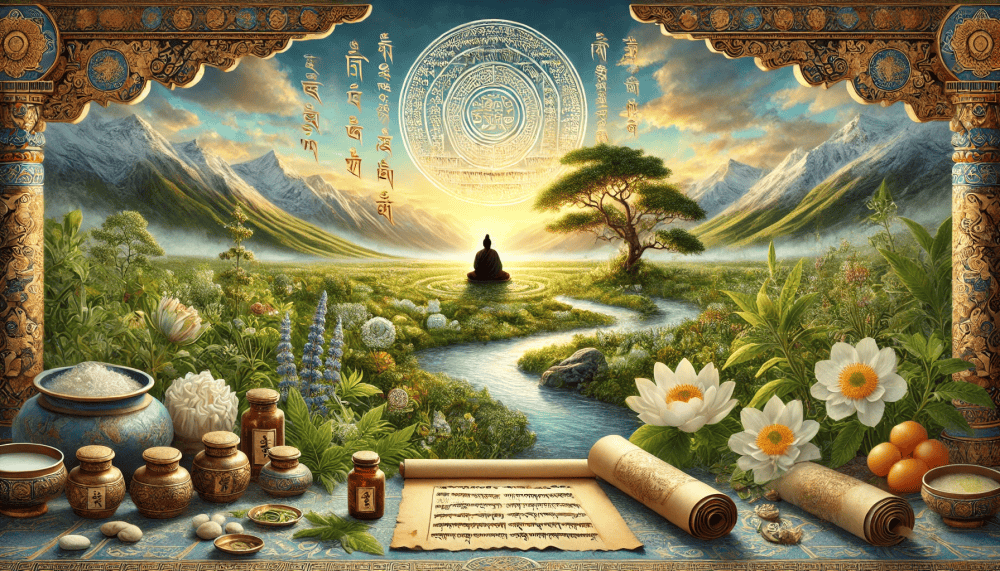
Contact Us
Love a Jampha product? We would be honored if you could help others discover the benefits by leaving a quick review and sharing your experience!
Resources
Contact Us
Love a Jampha product? We would be honored if you could help others discover the benefits by leaving a quick review and sharing your experience!
Resources
A Higher Expression
Using select Botanicals, Cannabinoids and Live Terpenes, we have crafted High Vibrational "Synergy Enhanced Terpene Infusions" (SETI) that deliver a targeted and controlled entourage of restoration to imbalanced dis-eased systems. These same terpenes are what keeps our ecosystems in balance and protected from diseases and infections, allowing them to thrive and prosper. The same effects have been documented in human clinical trials and supported by science having miraculous and marvelous bioactive influences throughout each of the body systems.
The statements made regarding these products have not been evaluated by the Food and Drug Administration. The efficacy of these products has not been confirmed by FDA-approved research. These products are not intended to diagnose, treat, cure or prevent any disease. All information presented here is not meant to substitute for or alternative to information from health care practitioners. Please consult your health care professional about potential interactions or other possible complications before using any product.
